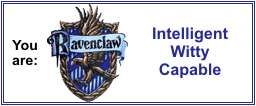 Gifted to Learn
Gifted to Learnby Gloria Mehlmann
University of Alberta Press 2008
This book not a chronological biography. Instead it consists of a series of stories about various students that Gloria was lucky enough to teach and how each of these students taught Gloria something about herself or about the world. Gloria is a Native Indian and yes, she grew up on an Indian reserve.
The biggest thing I learnt from this book was the deplorable and discriminatory state of Canadian Federal Indian and Treaty laws before 1985.
In 1960s Regina, Saskatchewan, when racial discrimination often went unchallenged, and the education system needed visionary reform, Gloria Mehlmann struggled to embrace her Cree/Saulteaux identity and sustain her passion for learning and teaching.
According to the 1895 Indian Act, indigenous women who married white men, lost their treaty status, and their children would not get status at all. In the reverse situation (indigenous men married to white women), men could keep their status, and their children would also get treaty status.
In the 1970s, the Indian Rights for Indian Women and National Native Women's Association groups campaigned against this policy on the grounds that it discriminated against women and failed to fulfill treaty promises. They successfully convinced the federal government to change the section of the act with the adoption of Bill C-31 on June 28, 1985.
Women who had lost their status and children who had been excluded were then able to register and gain official Indian status. Despite these changes, First Nations women who married white men could only pass their status on one generation; their children would gain status, but (without a marriage to a full status Indian) their grandchildren would not.
A First Nations male who married a white woman retained status as did his children, but his wife did not gain status, nor his grandchildren.
Source
While Gloria herself was lucky enough NOT to be sent to the notorious Indian Residential Schools, her older siblings were not so lucky. Gloria grew up hearing stories of the atrocious and violent acts committed in the schools. This was why the reserve demanded a school of its own. Gloria's formal education did not begin until the reserve finally got its own school. She was 10 years old when she started school.
At age 14 Glorias parents decided to send her away from the reserve to Regina, Saskatchewan, where she attended a local high school. Gloria later attended University in Regina as well as a Teachers Training College and by the early 1960's she was a qualified teacher and began teaching.
Gloria married a German immigrant (Peter Mehlmann) in 1960 and gave birth to a daughter Gabrielle around 1962. Gloria lost her treaty status as an Indian when she married Peter - just because he was not an Indian. Therefore she was never able to access federal funds to pay for her education. The family lived off student loans and other grants. They were always poor.
Under the Federal law, Gabrielle was not entitled to call herself a First Nations Indian - not until 1985 when the law was finally changed and both Gloria and Gabrielle has their Treaty Indian status restored.
Gabrielle graduated from Campbell Collegiate High School in Regina in 1980. Which makes her roughly two years older than me. If Gabrielle later married an non-Indian man and had children (even under the 1985 law) - because they are Gloria's grandchildren, they will NOT be entitled to any Indian treaty status, and they will not be entitled to any federal funds. They would only be entitled to treaty status and federal funds IF Gabrielle married a treaty status Indian man.
This is still a very discriminatory law. The only reason it was changed in 1985, was because an Indian woman took her case all the way to the United Nations which agreed that a woman losing her status in marrying a non-status man was discriminatory. Treaty status should NOT STOP after just one generation. Indian blood does not suddenly stop. One can have Indian blood down to the 128th part - that is, down to the 6th generation.
Residential schools
Rights of First Nations Women
Native Women's Rights March - 2008
Assembly of First Nations - Native Status FAQ (scroll down)
I read this book for the second Canadian book challenge - under the Biography (ABM) genre.









No comments:
Post a Comment